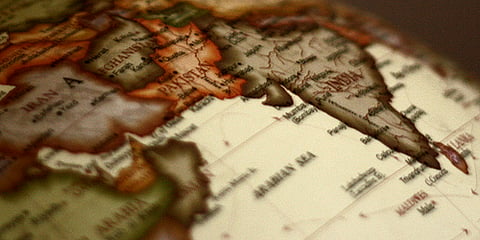In too deep
Afghanistan's history is a turbulent one filled with civil wars, invading armies, foreign political meddling, and disputed successions. Sitting on trade routes between the Mediterranean and China, the Silk Road, and the entrance to India, it has been seen as a prize for many conquering empires. Sadly, Afghans have paid a heavy price for this curse of geography. The British Empire in the 19th century could not subjugate the territories, nor could the Soviets in the 20th. Now the US-led coalition forces, after a disastrous occupation of 12 years, plan to leave the country later this year. 2014 is not just significant for Afghanistan: it will result in regional shifts of power and a new security paradigm, with serious implications for Pakistan.
The Soviet invasion in 1979 unleashed a period of intense conflict as the US and the West responded by mobilising unprecedented resources and funnelling support to mujahideen fighters through regional proxies, most notably Pakistan. Driven by its regional ambitions and perennial fear of India, Pakistan entered the game and for a decade supported the development and oversight of a jihad industry that played on Islamist passions against the 'infidel' Soviets. Thus, a stream of jihadists crossed the Durand Line and found many allies to further the rise of Deobandi Islam on both sides of the border. This was a defining moment when jihad acquired a legitimacy of its own and engulfed not only Afghanistan but also Pakistan.

